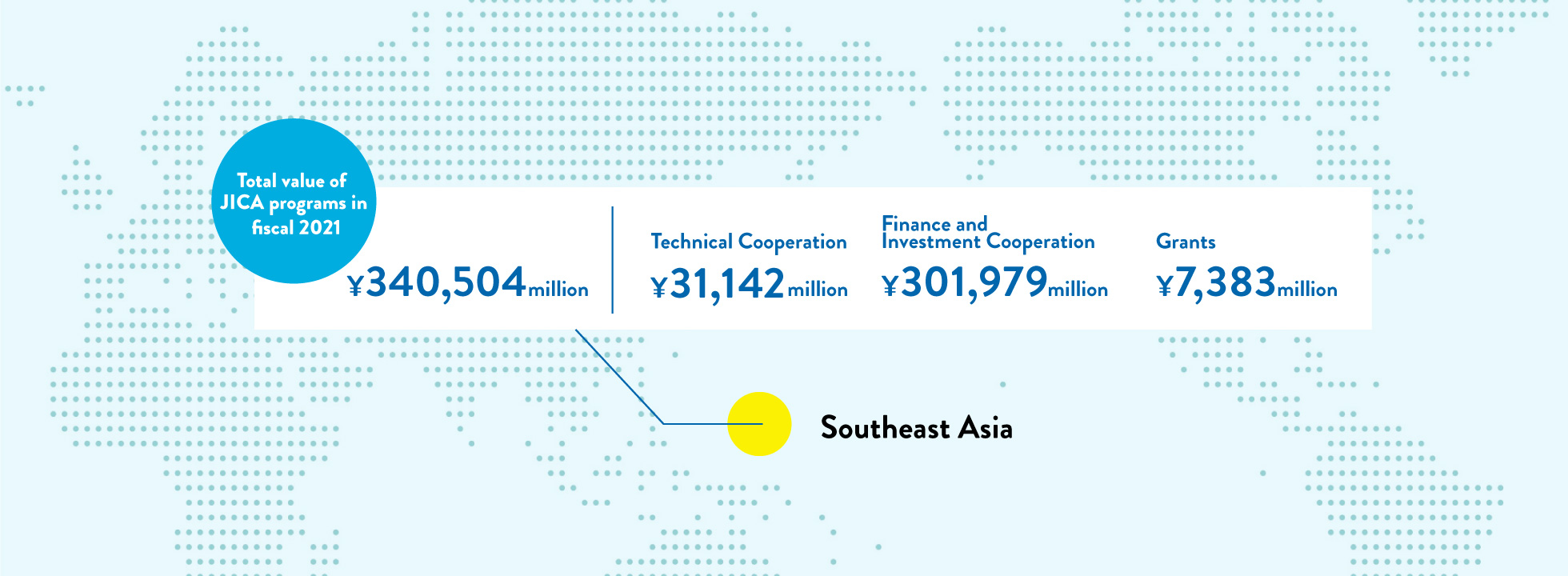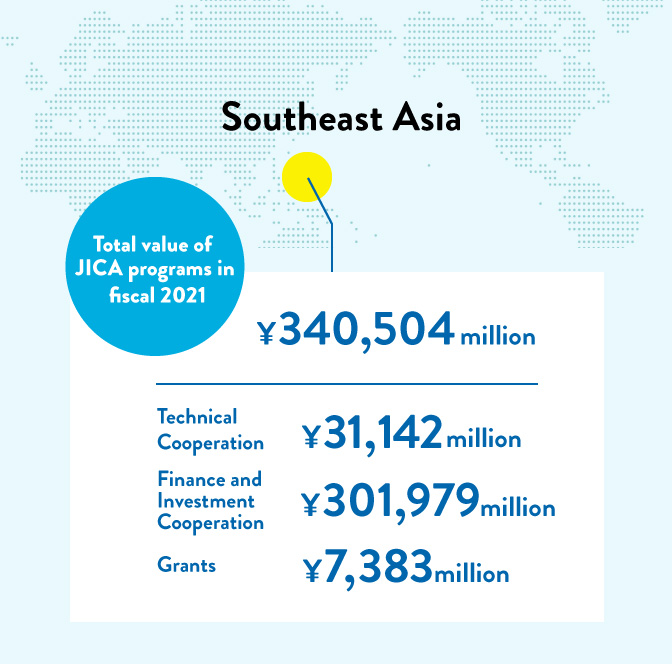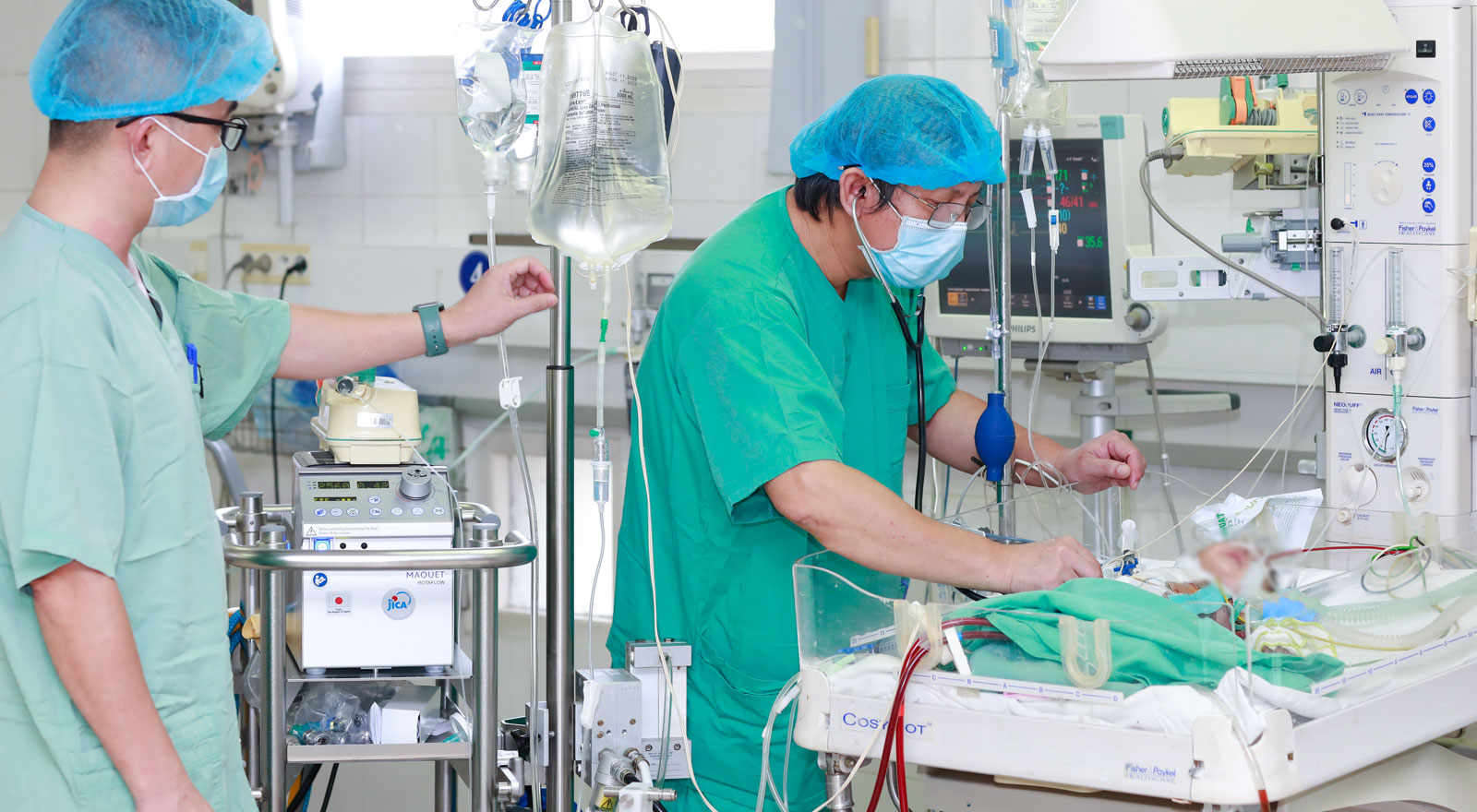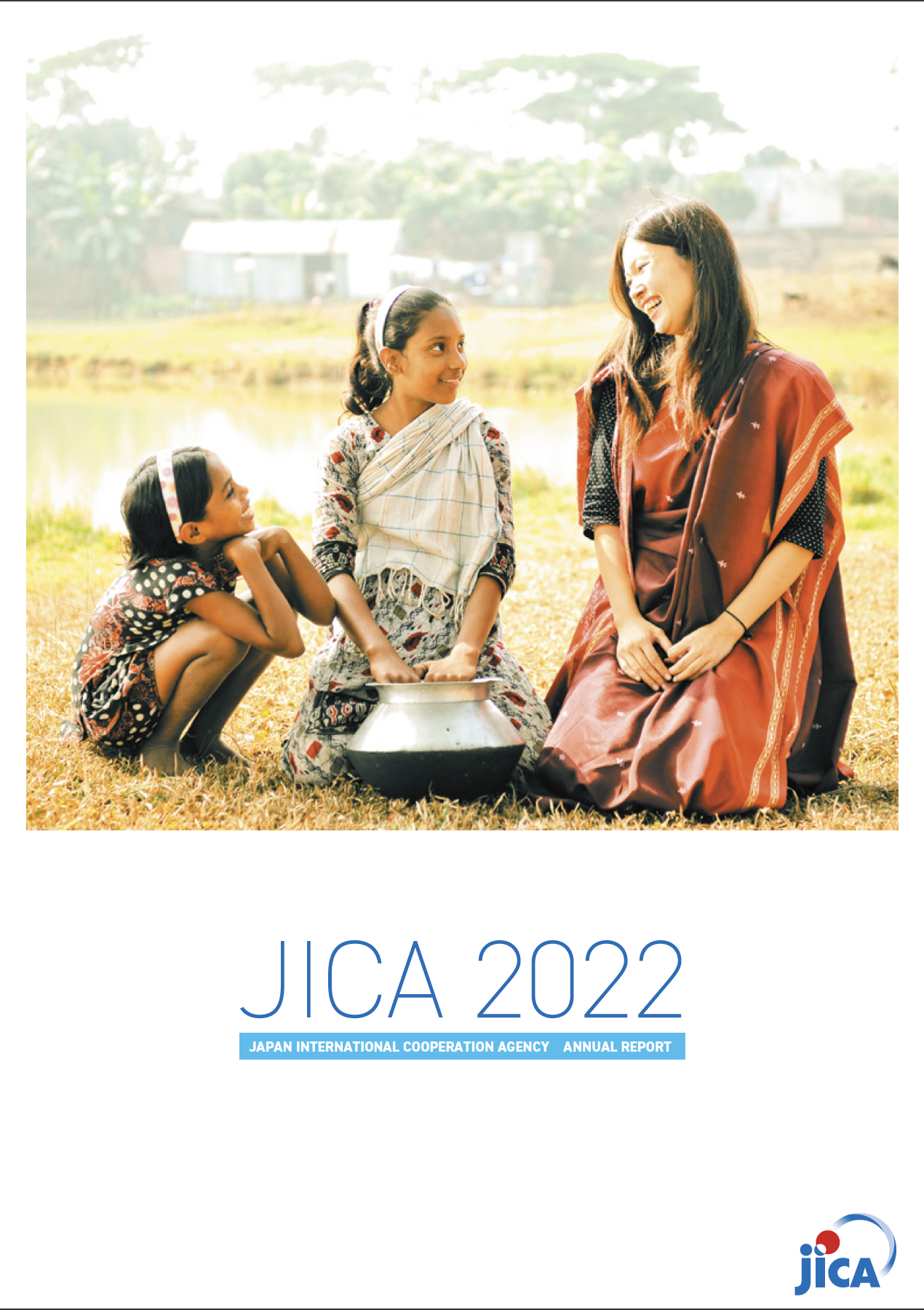approach
Southeast Asia


Promoting a “Free and Open Indo-Pacific”
ASEAN as a cornerstone of the Indo-Pacific
Member states of the Association of Southeast Asian Nations (ASEAN) play a leading role in promoting the stability and prosperity of this region, which faces the Indian and Pacific Oceans. ASEAN states thus constitute a cornerstone of a Free and Open Indo-Pacific (FOIP), a vision advocated by the Japanese government. While experiencing rapid economic growth, ASEAN countries face disparities both in the region and within individual countries along with enormous development needs in terms of both socioeconomic infrastructure and human resources development.
The Japanese government supports the ASEAN Outlook on the Indo-Pacific (AOIP), a vision announced by ASEAN in 2019, and has committed to cooperation in the priority areas outlined in the AOIP: maritime cooperation, connectivity, the SDGs, and the economy.
Responding to the COVID-19 crisis from a post-pandemic perspective
Based on this background, JICA’s cooperation covers the following focus areas:
- Strengthening ASEAN connectivity
Cooperation in both physical and nonphysical aspects of land, maritime, and air corridor connectivity projects - Promoting quality growth
Cooperation in mitigating urban traffic congestion, air pollution control, and solid waste management, among other projects - Creating a society with dignity through the embodiment of human security
Cooperation in health, education, and disaster risk reduction, among others - Promoting countermeasures to climate change, including decarbonization
- Developing human resources: leaders and administrative officers who will steer each ASEAN country in the future
- Addressing vulnerabilities in the region
Cooperation for Mindanao in the Philippines - Establishing and implementing operations that meet the needs of the times
Japan and ASEAN countries enjoy a strong relationship. In extending development cooperation, JICA makes maximum use of the broad-ranging expertise and know-how of private-sector companies, universities and research institutions, and local governments as well as taking advantage of digital transformation (DX). JICA’s cooperation for TimorLeste is designed to support the country’s accession to ASEAN and transition from post-conflict reconstruction to development.
In response to the COVID-19 pandemic, JICA forged ahead with JICA’s Initiative for Global Health and Medicine in fiscal 2021. Specific actions included offering budget support through Emergency Support Loans, strengthening systems for delivering telemedicine and vaccines through Technical Cooperation and Grants, and developing human resources in the health sector. JICA also implemented the JICA Program for Japanese Studies (JICA Chair)—which is designed to share Japan’s modernization and development cooperation experiences at selected universities in the Philippines, Viet Nam, Indonesia, Laos, Cambodia, and Thailand.
 Viet Nam: A doctor treating a patient at Hue Central Hospital, a referral hospital in central Viet Nam, using part of the medical equipment that JICA has provided to build up COVID-19 response capabilities, including ECMO units, ventilators, patient monitors, and digital radiography units.
Viet Nam: A doctor treating a patient at Hue Central Hospital, a referral hospital in central Viet Nam, using part of the medical equipment that JICA has provided to build up COVID-19 response capabilities, including ECMO units, ventilators, patient monitors, and digital radiography units.
Total value of JICA programs by country
 Note) Totals may not add up due to rounding.
Note) Totals may not add up due to rounding.

JICA Annual Report 2022